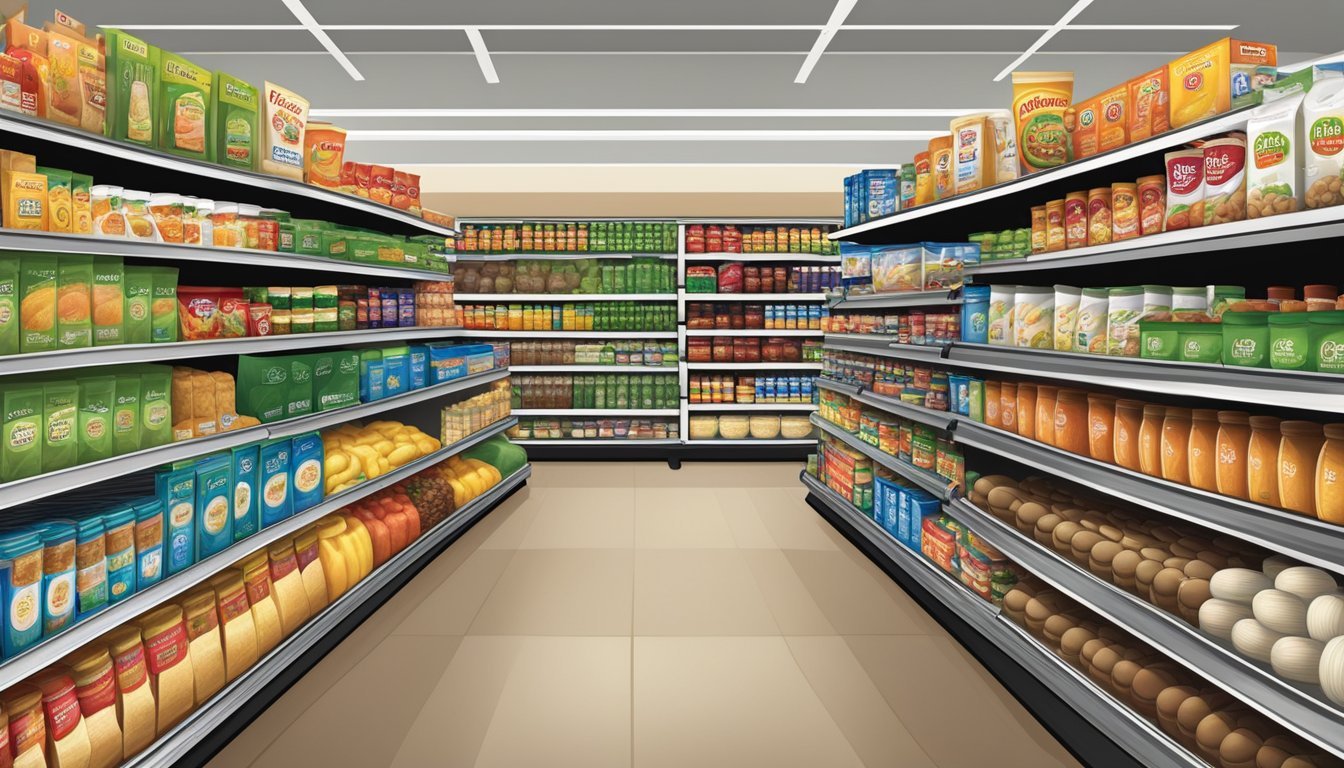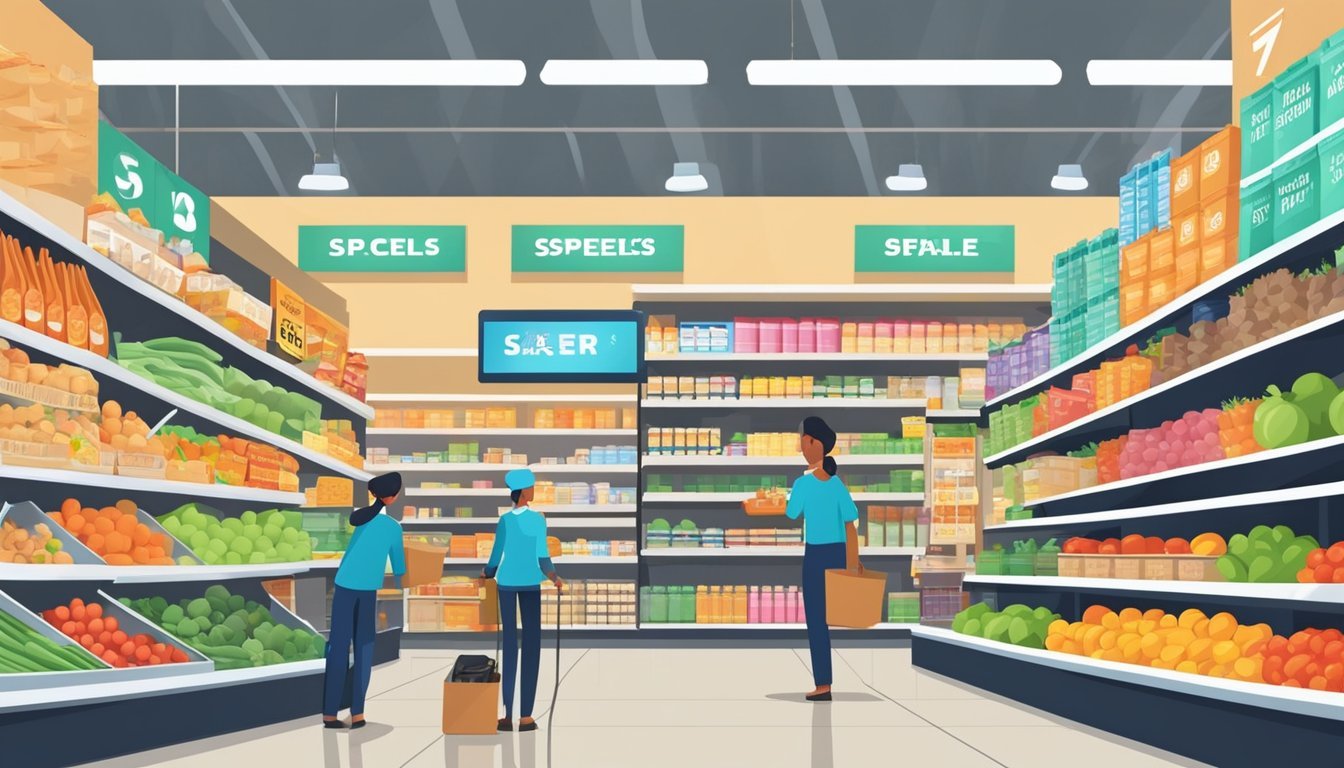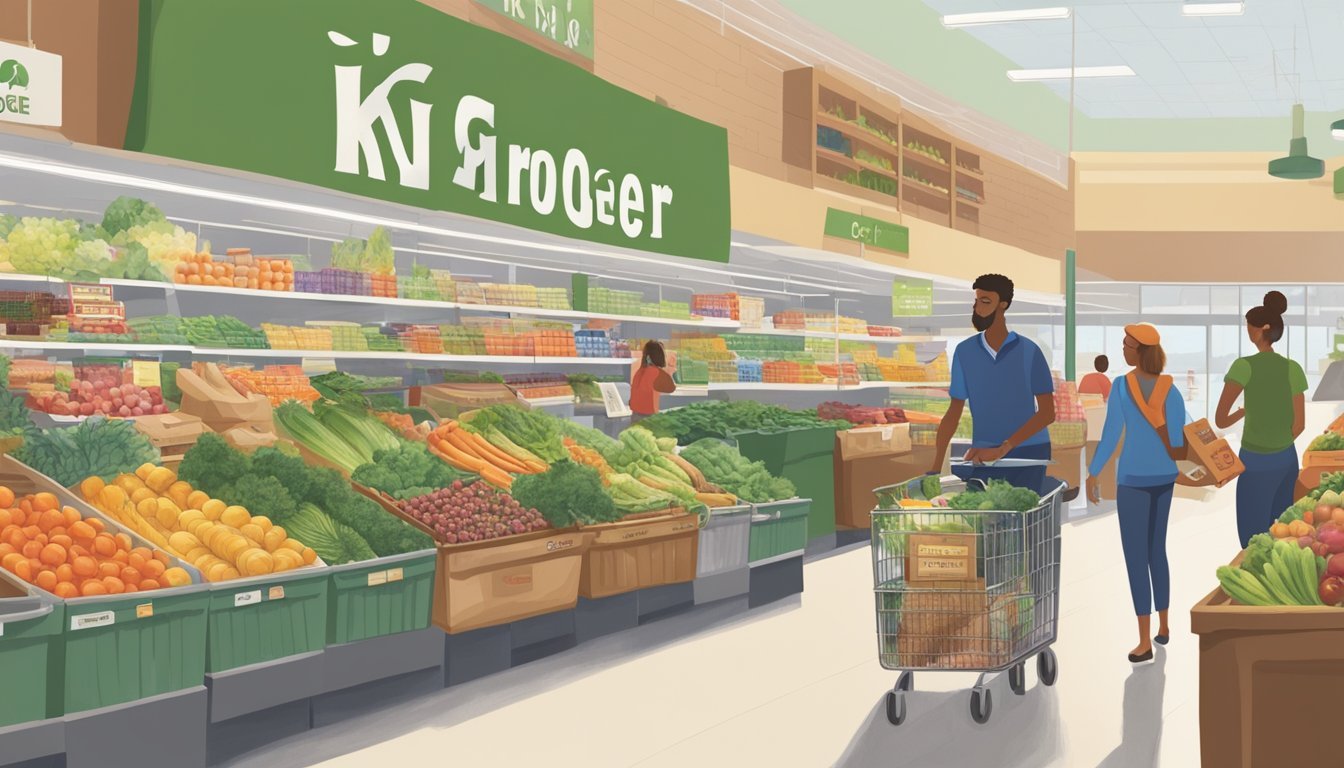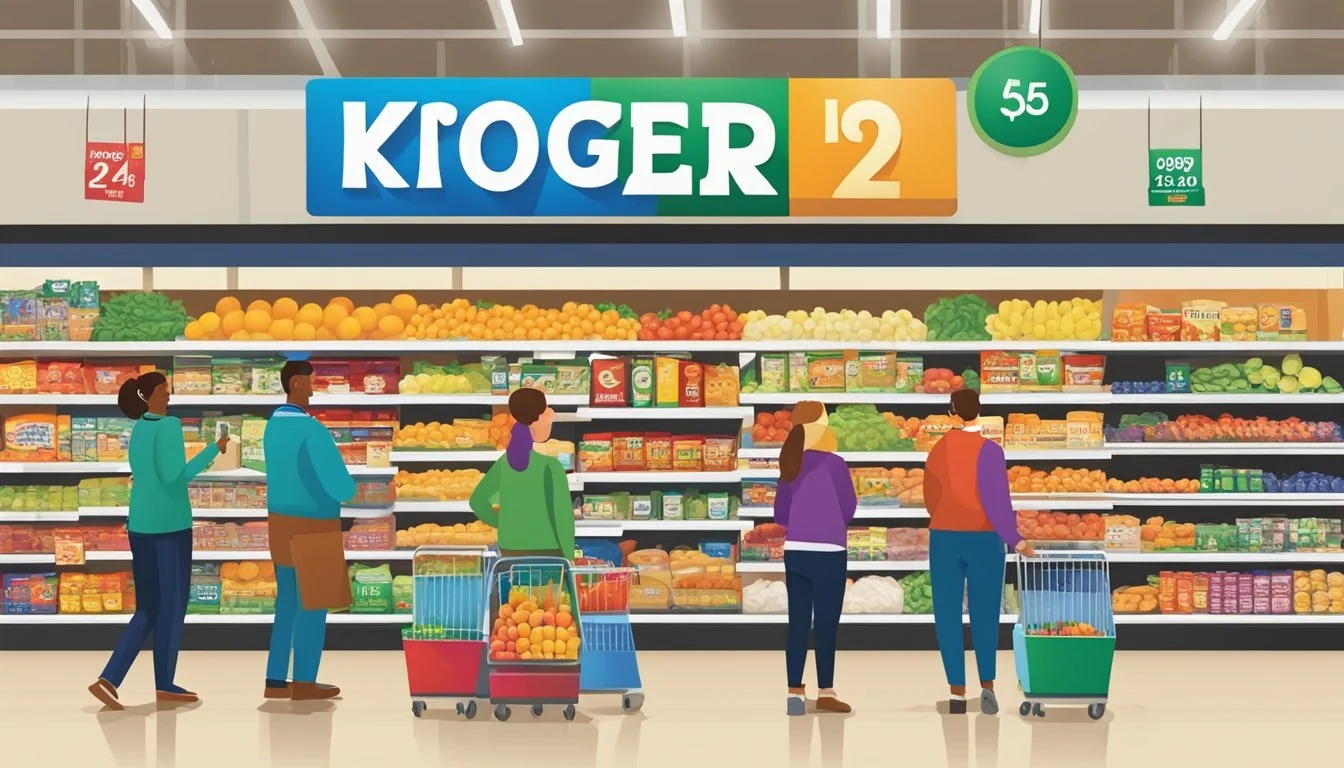Kroger vs Winn-Dixie
Comparing Shopping Experience, Prices, and Selection
Part of Our Grocery Store Guide with Details on Kroger and Winn-Dixie
When it comes to grocery shopping, customers often weigh their options based on a variety of factors, such as product variety, quality, pricing, and overall shopping experience. Two prominent players in the American supermarket scene are Kroger and Winn-Dixie. Kroger, one of the largest supermarket chains in the United States, is known for its extensive selection of groceries and house-brand products. It operates stores across many states, offering a comprehensive shopping experience tailored to a diverse customer base.
On the other hand, Winn-Dixie, which has a strong presence in the southern United States, has built its reputation around value for money, often providing its SE Grocers line at competitive prices. The brand is recognized for offering significant savings on everyday items and maintains a loyal customer base that appreciates the balance between cost and quality. The two supermarkets cater to different segments of the market, and understanding their distinct approaches to serving their customers is essential in evaluating which may be considered 'better' based on various criteria.
History of Kroger and Winn-Dixie
The Kroger Co. and Winn-Dixie Stores, Inc. are two longstanding grocery stores in the United States, each with a rich history of growth and expansion.
Establishment and Growth
Kroger
Founded: 1883 by Barney Kroger
First store location: 66 Pearl Street, downtown Cincinnati, Ohio
Initial investment: $372
Growth: Predicated on the motto of selling only products the founder would use himself, Kroger expanded to become one of the largest supermarket chains in the U.S.
Winn-Dixie
Roots Established: 1925
Original Name: Winn & Lovett
Headquarters: Jacksonville, Florida
Expansion: Grew through acquisitions to serve customers across Louisiana, Mississippi, Alabama, Georgia, and Florida.
Key Milestones
Kroger
1930s to 1950s: Pioneered the first supermarket surrounded by parking lots.
Winn-Dixie
1955: Adopted the current name, Winn-Dixie.
1956: Acquisition of 24 Ketner-Milner Stores in North Carolina, 42 Hill Stores in New Orleans, and nine Kings outlets in Georgia.
1962: Acquisition of Hill Grocery Co. with 35 stores in the Birmingham area.
Store Brand and Product Quality
When exploring the store brands of Kroger and Winn-Dixie, product quality is a focal point for consumers. Each brand has developed its own private label line that competes with national brands on both quality and price.
Kroger's Private Label
Kroger offers a variety of store-brand products under its 'Private Selection' and 'Simple Truth' lines. The 'Simple Truth' label, in particular, is positioned as a natural and organic alternative, catering to health-conscious shoppers. These products span across many categories and often include non-GMO and organic options, providing a quality that rivals that of national brands.
Private Selection: Gourmet-focused items, competing with higher-end brands.
Simple Truth: Emphasizes organic and natural products for health-aware consumers.
Winn-Dixie's SE Grocers Brand
Winn-Dixie's 'SE Grocers' brand is synonymous with value. Reports suggest that the SE Grocers line maintains quality that is on par with national brands, often priced around 20% lower. The brand encompasses a wide range of products, including budget-friendly staples like white sandwich bread and raw chicken, offering consumers substantial savings on everyday items.
SE Grocers: Comparable taste and quality to national brands at a reduced cost.
Product Highlights: Focuses on affordable staples, appealing to budget-conscious shoppers.
Comparison of Quality Standards
While Kroger and Winn-Dixie both offer quality products through their store brands, the approach to quality standards differs between the two.
Kroger places a strong emphasis on natural and organic offerings with its 'Simple Truth' line, highlighting a commitment to quality that meets specific health criteria.
Winn-Dixie's SE Grocers brand, meanwhile, focuses on meeting national brand quality at a lower cost, appealing to shoppers looking for economic options without sacrificing taste or quality standards.
Thus, customers may find that both Kroger's and Winn-Dixie's store brands provide a comparable level of quality to national brands, yet each supermarket's private label offers distinct advantages depending on the shopper's priorities, whether it be organic and health-focused products or cost-effective everyday items.
Product Range and Variety
When comparing Kroger to Winn-Dixie, the breadth of product range and variety offered is a pivotal aspect. Both stores provide ample selections across their departments, catering to diverse consumer needs.
Fresh Produce Selection
Kroger boasts an extensive variety of fresh produce, often featuring both conventional and organic options. Shoppers can find a range of fruits and vegetables, from staple items like apples and lettuce to more exotic choices like dragon fruit and heirloom tomatoes. In contrast, Winn-Dixie offers a respectable selection of produce, though the variety may be less comprehensive than Kroger's.
Meat and Deli Departments
The meat department at Kroger is known for its wide assortment, including various cuts of beef, pork, and chicken. They also offer specialty meats and a selection of plant-based alternatives. The deli counters provide a multitude of cheeses, cold cuts, and ready-to-eat options. Winn-Dixie, while convenient, may have a more limited selection in comparison, yet they uphold quality in what they do provide.
Dairy and Baked Goods
In the realm of dairy, Kroger features a broad array of products from milk to specialty cheeses, catering to both budget-conscious and gourmet buyers. The bakery section presents fresh breads, pastries, and custom cakes. Winn-Dixie's dairy and bakery departments are competitively stocked, ensuring customers have access to fresh milk, bread, and desserts, though the assortment might not match Kroger's scale and diversity.
Non-Grocery Items
Beyond groceries, Kroger's non-food aisles are aplenty with cleaning supplies, health and beauty products, and home goods, reflecting a one-stop-shop convenience. Winn-Dixie similarly offers a selection of non-grocery items, including essential cleaning supplies and canned goods, however, they may focus more heavily on the grocery experience rather than a comprehensive range of non-food items.
Pricing Strategy and Discounts
When comparing Kroger and Winn-Dixie, one can observe clear differences in their pricing strategies and the variety of discounts they offer. These can significantly impact the shopping experience for customers and the overall value they receive.
Regular Pricing
Winn-Dixie often positions itself as an affordable option, with regular prices that tend to be competitive. Customers shopping for store brand products, such as SE Grocers, can generally expect to find prices about 20% lower than national brands. In contrast, Kroger offers a wide range of private label products through its various lines, including Kroger Brand and Simple Truth, which are priced to provide value while maintaining quality.
Sales and Promotions
Both grocery chains routinely run sales and promotions. Winn-Dixie leverages its digital coupons and weekly deals to draw in customers looking for discounts. They've been known to run promotions offering free delivery on pick-up orders occasionally. Kroger counters this with a robust selection of weekly ad promotions and savings events that change periodically, helping keep prices down for their shoppers.
Loyalty Programs
Loyalty programs are a focal point of both stores' strategies. Winn-Dixie's customers can benefit from their rewards card, which offers fuel perks and points that translate into dollar discounts. Kroger's loyalty program also provides fuel points in addition to personalized deals and digital coupons to enhance their customers' savings.
Comparative Price Analysis
A direct comparison of product prices indicates that Winn-Dixie usually offers lower regular prices on several products against Kroger. However, Kroger's scale and purchasing power enable it to offer substantial sales and promotions that can sometimes result in lower prices than Winn-Dixie's. The best overall value for customers will often depend on the timing of purchases and the ability to take advantage of various promotions and loyalty benefits at each store.
Store Experience and Customer Service
In comparing Kroger with Winn-Dixie, customers often focus on store experience and customer service, which play pivotal roles in customer satisfaction.
Store Layout and Design
At Kroger, store design is targeted towards simplicity and efficiency, featuring clear signage and well-organized aisles that facilitate the shopping process. Kroger's Marketplace stores are particularly noted for their vast size and extensive range of products. In contrast, Winn-Dixie typically maintains a standard supermarket layout, emphasizing convenience and accessibility, with a focus on their SE Grocers brand products which are positioned to offer value.
Staff Friendliness and Helpfulness
Employees at Winn-Dixie are known for their regional charm and willingness to assist customers, reflecting the brand's Southern hospitality. Meanwhile, Kroger invests significantly in customer service training programs, resulting in knowledgeable staff ready to support shoppers in-store. Kroger's extensive market share and resources allow constant optimization of customer service operations.
Checkout Efficiency
Kroger employs technology and innovation, such as self-checkout stations and scan-as-you-go programs, to streamline the checkout experience. Commitment to a swift process reduces wait times. Winn-Dixie offers traditional checkout service, with consistent feedback on maintaining a competent and efficient checkout flow, ensuring customers complete their shopping experience without unnecessary delay.
Sustainability and Ethical Practices
When comparing Kroger and Winn-Dixie, scrutinizing their sustainability and ethical practices, particularly regarding environmental impact, animal welfare and meat production, and community engagement, reveals their commitment to creating a more sustainable future.
Environmental Impact
Kroger has been transparent in its efforts to foster a resilient and sustainable food system. In its 2023 Environmental, Social & Governance (ESG) Report, Kroger details its environmental strategies, including climate-related risks and opportunities, with a goal to reduce its carbon footprint. As part of its initiative, The Kroger Co. focuses on sustainable sourcing and reducing waste to ensure product freshness and quality maintenance.
Winn-Dixie, operated by Southeastern Grocers Inc., has made strides in environmental stewardship with its in-store brands. This supermarket has worked on reducing its overall environmental impact by implementing responsible practices across its operations, aligning with customers' expectations for supermarkets to be proactive in protecting the environment.
Animal Welfare and Meat Production
Kroger places a strong emphasis on responsible sourcing for its meat production. It provides an assortment of products that adhere to animal welfare standards, ensuring that pork, chicken, and eggs are sourced from suppliers that limit the use of antibiotics and hormones. Kroger's butcher counters offer fresh options, with a commitment to transparency in its supply chain practices.
At Winn-Dixie, the approach to animal welfare and meat production includes offering selections that prioritize the health and well-being of animals. Their policies aim to maintain a balance between freshness and ethical responsibility, striving to provide customers with quality meat options produced without unnecessary antibiotics or hormones.
Community Engagement
Kroger’s involvement extends beyond just environmental concerns; it acknowledges the role it plays in community engagement, with objectives tailored towards creating equitable access to food. By addressing food security and donation efforts, Kroger invests in the well-being of the communities it serves.
Conversely, Winn-Dixie, through its association with Southeastern Grocers, focuses on creating a positive impact within its regional communities. This supermarket chain actively engages in community-building initiatives, fostering relationships that go beyond just selling products, but also enhancing the social fabric of the areas they operate in.
Market Competition and Positioning
In the fiercely competitive grocery market, both Kroger and Winn-Dixie face intense rivalry from a plethora of national and regional chains, each employing distinct strategies to capture market share. Here we dissect the core aspects of market competition and positioning, focusing on how these two stores carve their niches in such a dynamic industry.
Competitive Landscape
Kroger stands as one of the largest grocery retailers in the United States, contending directly with giants such as Walmart, Costco, and Target. Winn-Dixie, on the other hand, operates primarily in the southeastern U.S. and competes with regional stores like Publix and Food Lion, as well as specialized chains such as Trader Joe's and Whole Foods Market. Notable factors influencing the competition include pricing, store brand quality, customer service, and location convenience. Aldi has also been a disruptor in the market with its low-price model, affecting the strategies of both Kroger and Winn-Dixie.
Walmart Supercenter: Known for competitive pricing and broad assortments.
Target: Focus on combining shopping experience with value.
Costco & Sam's Club: Compete on bulk sales and membership-based access.
Whole Foods & Trader Joe's: Specialize in organic and specialty products.
Growth Strategy
Kroger's strategy involves a mix of organic growth and mergers, evidenced by its attempted merger with Albertsons, a move poised to expand its footprint significantly. Meanwhile, Aldi has been rapidly expanding, with plans for converting Winn-Dixie supermarkets into Aldi stores, indicating an aggressive growth plan. Target and Walmart continue to expand their grocery options to leverage their large store networks. Winn-Dixie, while smaller than Kroger, has been focusing on remodeling existing stores and enhancing the customer experience to stay competitive.
Kroger: Expanding through mergers and e-commerce investments.
Winn-Dixie: Remodeling stores and bolstering customer service.
Industry Challenges
Grocery retailers face challenges such as supply chain disruptions, keeping prices competitive, and adapting to consumer demands for online shopping options. Walmart and Amazon (with its ownership of Whole Foods) have pushed heavily into the online space, setting a high bar for competitors. Economic factors such as inflation also play a role, with stores like Lidl and Aldi capitalizing on their discount pricing. For regional players like Hy-Vee and Stater Bros, maintaining a strong local presence and customer loyalty is crucial in the face of such challenges.
Supply Chain: A delicate balance for maintaining product availability.
Pricing Pressure: Stores must stay competitive without sacrificing margins.
E-commerce: Growing consumer expectation for online shopping options.
Future Outlook
The future outlook for Kroger and Winn-Dixie reveals distinct paths. Kroger sustains a steady expansion with a focus on fresh food, offering a robust selection that includes organic and natural products. Their dedication to providing a wide array of fresh produce and quality baked goods positions them competitively within the grocery sector.
On the other hand, Winn-Dixie's parent company, Southeastern Grocers, has initiated a transition phase with Aldi's acquisition. Aldi plans to rebrand approximately 400 Winn-Dixie and Harvey’s Supermarkets, elevating them within the grocery landscape. This shift suggests an alignment towards Aldi’s model of efficiency and affordability, particularly in staple categories like baked goods and fresh food.
Aspect Kroger Winn-Dixie Expansion Progressive and consistent Major via Aldi acquisition Fresh Food Broad assortment Emphasis on affordability Baked Goods Quality focus Standard offerings
The strategic realignment of Winn-Dixie stores holds potential for innovation in product offerings and store format, reinforcing its position in the competitive grocery marketplace. Kroger continues to invest in technology and store experience, aiming to redefine the grocery shopping experience with a concentration on quality and customer service.
Both grocery chains are maneuvering to adapt to the evolving consumer needs, each with their strategies to secure their places in the future market. It's a transformative time for the grocery industry, and both Kroger and Winn-Dixie are poised to meet these changes head-on.
Conclusion
When comparing Kroger and Winn-Dixie, customers find that each grocery store has its unique strengths. Kroger, with a vast presence across the country, offers a diverse array of products including organic and natural selections that cater to health-conscious shoppers. They also provide a comprehensive loyalty program, fuel points, and a seamless digital shopping experience.
Winn-Dixie, on the other hand, is often recognized for its competitive pricing, particularly on everyday items like bread and raw chicken. The chain's focus on affordability can be particularly appealing in regions where they hold a strong market presence.
Both stores have made significant efforts to provide value and convenience. Kroger's expansion into innovative store formats and their commitment to technology illustrate their dedication to enhancing the shopping experience. Similarly, Winn-Dixie's customer-centric promotions and discounts demonstrate their commitment to budget-friendly shopping.
For those who prioritize a wide variety and technological innovation, Kroger could be the preferred choice.
If affordability is the main concern, especially in the southern United States, Winn-Dixie may be the better option.
In essence, the decision between Kroger and Winn-Dixie boils down to individual needs and preferences. The geographical location, the value given to price versus variety, and the importance of a modern shopping experience play crucial roles in guiding consumers to their preferred grocery store.







